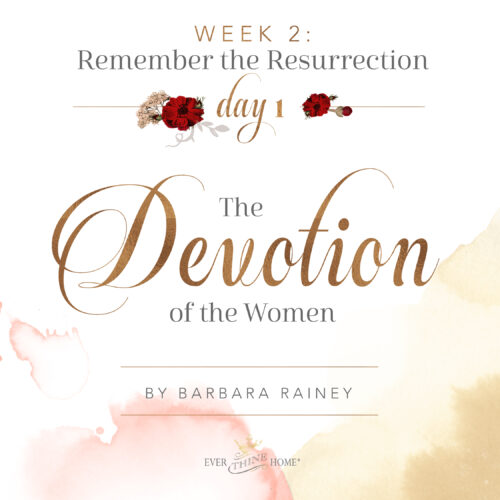Shhh! Still your giggling just long enough to hear the crisp crunch of winter wonderland. Sink your feet deeper into the frozen delight that blankets the icy ground. Get a handful of the fresh powder and sit in the still silence for another moment. The snowflakes continue to pit pat as they softly swoosh to the ground. You’ll wake up tomorrow morning to another magical world of fresh, white snow that covers all the muddy footprints from today.
Did you know that’s how Jesus promises to purify us? Isaiah 1:18 says, “…though your sins are like scarlet, they shall be as white as snow.” Jesus can take any wrong we’ve done in the past and make us clean again through His forgiveness.
Clive Staples Lewis was a man who experienced God’s cleansing firsthand. In 1898 he was born into a wonderful Irish family. Even though his parents were dedicated churchgoers, Lewis found the long services boring and didn’t look forward to this weekly chore. The only thing he remembered from his Sunday lessons was that prayers offered in faith would be granted.
Lewis offered continuous prayers in faith over the next years as his mother grew sicker by the day. She passed away when he was only 10, and he concluded that “the thing hadn’t worked,”[1] his prayers had not been answered.
His father sent him to a number of boarding schools because he didn’t feel like he could take care of the boy on his own. Each professor was hard and mean, but none was worse than Professor Kirkpatrick. An atheist, Kirkpatrick encouraged Lewis to think for himself about all details of life, specifically spiritual matters. Since Lewis already had a distaste for the church, Kirkpatrick’s encouragement led him to abandon his childhood faith and pronounce himself an atheist as well.
Kirkpatrick’s teaching helped Lewis get accepted to University College in Oxford. However, his education was interrupted by World War I in 1917, and he enlisted in the British army. The experiences of war are horrifying for any soldier, and even more so for Lewis who wasn’t relying on Christ in his hardships. C.S. was wounded, discharged, and then lost his best friend, Paddy, in battle. This left him with no peace to hold onto, so he spiraled further into anger at a God he claimed wasn’t real.
Lewis went back to Oxford to complete his college education. The professors required, as Kirkpatrick did, that information be interpreted through mental judgment and intellect. If something couldn’t be proven, then it must not be worth knowing. The painful parts of his childhood and shadows of war could not be reasoned through, so Lewis again grew bitter toward God.
For fun, Lewis and his friends often discussed the philosophical ideas of life. In 1931, God used one of these debates to call him to Christianity. Lewis set out to convince his Christian friends, J.R.R. Tolkien and Hugo Dyson, that God could not be true because reason could not prove it. But Tolkien’s and Dyson’s words convinced him that God is the creator of all logic. Without God’s giving of intellect and wisdom, no human would have the mental capacity to reason for or against Him at all. C.S. “admitted that God was God and knelt and prayed.”[2]
C.S. Lewis was already a well-known writer who used his experiences to write about mythology and his longing for fantastical other worlds. After his conversion he wrote about God hunting him down because He created all people to long for another world: the wonderful world of heaven. He published many fiction books— like the popular Out of the Silent Planet, The Screwtape Letters, and The Chronicles of Narnia— that created other worlds for his readers. These imaginative worlds described current spiritual warfare and the great joy to come for all believers.
Lewis married late in life to Joy Gresham. Their marriage lasted only four short years because Joy lost her life to cancer. Lewis responded to her death with his book A Grief of Observed, where he wrote that grief was like being afraid but he didn’t need to be afraid. He also didn’t fear three years later when he died at 63, because he knew that he was going to heaven … the world we are all meant for!
The life and writings of C.S. Lewis remind us to never be afraid to ask questions and examine ideas because God isn’t afraid to reveal Himself, even in the difficult answers. God can take any of our doubts and attempts to get wisdom from our own ideas and turn them into something pure for His sake.
Use the questions below to reflect:
- Have you encountered a time when you prayed in faith and felt your prayers weren’t answered, deciding as C.S. did that “the thing hadn’t worked”?
- C.S. Lewis experienced many painful things in his childhood that made him doubt God. What experiences have you gone through that have tempted you to doubt God?
- How does knowing that you are meant for the world of heaven make you feel?
God, thank You that You are the giver of knowledge and all wisdom. You have created us as intelligent creatures who question Your wonderful world so that we can better know it. Remind us that the capacity for all knowledge comes from You. Thank You for our ability to reason and understand logic so that we have the capability to know and understand You. Amen.
Adapted from Barbara’s book, Growing Together in Faith.
[1] Surprised by Joy
[2] “Chronology of the Life of C.S. Lewis.” CSlewis.org. C.S. Lewis Foundation, 2009. Web. 25 Feb. 2010. <www.cslewis.org/resources/chronocsl.htm;>.





